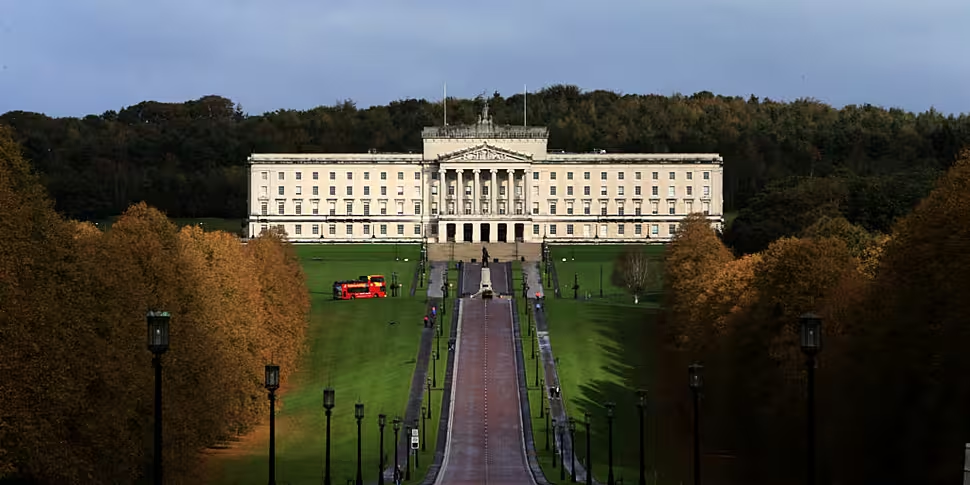Amnesty International says a patchy abortion law in Northern Ireland is having a "grave and urgent effect" on the lives of women there.
The Stormont assembly voted 46:40 to oppose the UK government’s abortion regulations on Tuesday.
The DUP motion was tabled in response to Heidi Crowter, a 24-year-old disability campaigner who has spoken out against the proposal.
British MPs are due to vote later this month on whether to approve or reject the regulations.
While the Stormont vote will not directly change the law in Northern Ireland, campaigners claim it could make it more difficult for MPs to vote in these regulations.
Westminster voted to relax abortion laws there last October in the continuing absence of a functioning Stormont executive.
The procedure is legal in the region in cases between 12 to 24 weeks where there is a risk to the health of the woman, and also beyond 24 weeks where there is a serious or fatal impairment.
Grainne Teggart from Amnesty International Northern Ireland told Sean Moncrieff the COVID-19 situation has set back the proposals.
"Whilst we were expecting our Department of Health to get these services urgently commissioned, COVID is presenting additional new barriers to women accessing these services.
"And it's having a very grave and urgent effect on the lives of women here."
"We have put in place emergency provisions, if you like, up to 10 weeks of pregnancy.
"Our Department of Health... have shown no leadership on this matter, they have not commissioned any of these services yet.
"So that has meant our health trusts in the North and an organisation called 'Informing Choices NI': they have a goodwill partnership... where if you up to 10 weeks gestation you can access abortion pills.
"The first pill has to be taken on a health and social care premises, the second set of abortion pills at home.
"So that is providing some remedy to some women, and that is a welcome development - but it is temporary, it is an interim measure, and it doesn't excuse or let the Department of Health off the hook with what they must now do - which is make sure there is proper pathways to this care."
"Outside of the 10 weeks, the access - and bearing in mind that these services are now legal - it's patchy, it varies.
"The Department of Health here seem to be trying to rely on the fact that women should be travelling still to England.
"There is a free-funded service for women from the North of Ireland in England - but of course the issue there, particularly during COVID, is that travel is simply not a safe or viable option for the majority of women".
"And it also means that, for example during COVID, for those women that are being told to shield by government: there's a hypocrisy in that advice.
"Because of course they're saying stay home, save lives and obviously protect yourself - but equally they're not giving women what they need to be able to access abortion services, including safely, self-managing abortion at home through, for example, the use of both abortion pills through a tele-medicine service."
She said of women in more vulnerable categories, such as those suffering domestic abuse: "These are not women for whom travel was ever an option".
On the DUP motion, she said: "Our own health minister voted with the DUP on that motion.
"But... that motion has no impact on our hard-won abortion law, it has no impact on these regulations.
"But it does paint a very concerning picture about the signal of intent, if you like, from the DUP and also the fact that our own health minister voted with them on this.
"And it raises of course those questions about is that feeding into the delay on why he's reluctant to commission these vital healthcare services?"









